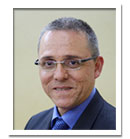
This course provides test engineers and test team leaders with the main ideas, processes, tools and skills they need in order to set themselves on a path for true testing professionalism.
This hands-on course covers the major test design techniques with lecture and exercises. The course provides the methodology behind the testing and covers issues both individual testers related as well as the whole testing team related. The testing process is presented through theory and hands-on exercises that follow an example project (which was developed for the purpose of presenting this course, and is adjusted to current technology), including the challenging tasks of tracking, analyzing and presenting tests results. Test environment and test automation issues are also covered, along with system development relevant lifecycles and how they affect testing. Class solutions are presented for the exercises performed in the class.
This course is aimed at test engineers and test team leaders preparing for ISTQB® foundation level certification. It is based on the International Software Testing Qualifications Board Foundation Syllabus (www.istqb.org), and has been submitted for accreditation to ITCB (Israeli Testing Certification Board), which is a member of the International Software Testing Qualifications Board.
This course is intended for Software Testers, Test Analysts, Test Engineers, Test Consultants, Quality Assurance and Test Managers.
Alon Linetzki, Founder and CEO of QualityWize™, has been an expert in SW engineering, Quality Assurance and Testing for the last three decades, supporting organizations in improving their quality, development and testing processes, increasing R&D ROI, and implementing good practices in context uniquely tailored to customer’s business, technology and engineering needs.
Alon serves as an Agile Coach, supporting companies in their Agile Transformation, and implementing good SW engineering practices while so.
He is a Certified Agile Scrum Master, Certified LeSS Practitioner (Large Scale Agile), Certified System Analyst, Certified ISTQB® Advanced Level Test Analyst & Test Manager, Certified Lead Quality Auditor (ISO-9000), Certified CMMi Quality Engineer, Certified TMMi Assessor (pending), and more. He has experience working in the - Telecom, Military, Insurance, Banking & Finance and Medical, Audio & Video, Cyber-Security systems and domains. Alon is also an experienced Personal Communication & Presentation Skills Coach with Dale Carnegie® program.
He was the co-author of the ISTQB® Foundation Level Agile Tester certification syllabus, and is now co-author of the ISTQB® Advanced Level Agile Technical Tester certification syllabus.
He has co-founded ITCB® (the ISTQB® Israeli branch), where he serves voluntarily as Vice president and marketing director. Alon is also the ISTQB® worldwide Marketing WG Chair. He has founded and is the chair of the Sigist Israel forum (Special interest group in SW testing in Israel). Alon is the chair of the Agile Management Challenges forum in Israel.
Alon has written many workshops and courses over the years, mainly from his experience and real life projects, both ISTQB® certification and other uniquely design (i.e. Optimizing Test Design Using Tools, Risk Based Testing, Root Cause Analysis Techniques, Personal communication and presentation skills, Measurements and Metrics for making good Quality Decisions, and more). So far, coaching more than 6,000 students in his career, and speaking at international conferences in more than 20 countries across 4 continents.
Served in the military as an officer (computer corps), and released in the rank of a Major. Educated in Bar Ilan university, where he got his B.Sc. in Statistics, and later at COMAS where he graduated the MBA program (Cum Laude).
A popular speaker at international conferences and events, where he shares his ideas and experience with professionals and managers worldwide. Has been the program lead of the SIGiST Israel forum in the last 12 years, and the Program Chair for the Cyber and Security Conference, organized by SCE University (2017). He is publishing regularly in the Testing World magazine in Israel, and other magazines around the world.
From time to time, Alon is invited by the SCE University to speak about Industry hot quality, SW engineering and testing topics to 1st and 2nd degree students.
Foundation: 40 questions
Duration: 60 minutes
Pass Score: 65%
Do note that course instruction and exam will be in English. Should English not be your mother tongue, you will be eligible to get 25% more time, making the exam 75 minutes.

(Register by 31st December 2018)
Terms & Conditions Apply:
Course will proceed when requisite minimum number of participants have signed up.
For items marked with , registration and payment should be made by 31st December 2018.
For items marked with, Corporate Discounts rate applies with a minimum of 3 or more participants from the company for the same class. Registration and payment should be made by 31st December 2018. Please ask your company Human Resource (HR) representative to contact +65 9488 2567 or email sales@sela.com.sg for more information details.
For items marked with , Inclusive of Certification Exam
Sela Technologies Pte Ltd reserves the right to amend any terms & conditions without prior notice.